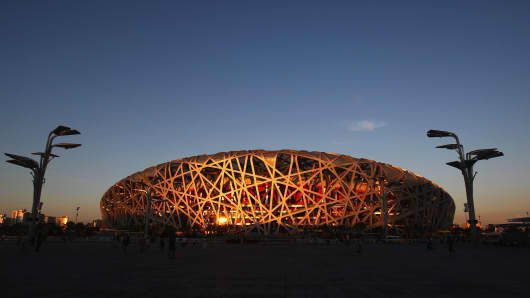China Faces Tug-of-War Over Growth Strategy
China Trade Numbers Suggest Deeper Slowdown
Crackdown on Shadow Financing Caused Cash Crunch, Says China
Along with cancelling a series of conferences and exhibitions on the sidelines of the games, the number of invited foreign guests has also been reduced by half. Those foreigners who do make the guest list will have to endure relative privation. There will be "neither welcome banquets nor souvenirs for them", the official Xinhua news agency reported.
The shift to austerity falls in line with a tone set by Mr Xi since his first days in office late last year as head of the Communist party. He banned flower displays at official events and ordered that banquets should be pared back, demanding that government spending should be less wasteful.
These demands have intensified in recent months as the Chinese economy has slowed and after Mr Xi launched a new campaign against "hedonism and extravagance" among other ills.
(Read More: The China Rival With Most to Gain From Its Slowdown)
The finance ministry this week ordered all units of the central government to reduce general expenditures such as car purchases and overseas travel.
The State Council, or cabinet, followed that up with an additional order requiring all provincial governments to provide public disclosures of how much they spend on cars, receptions and overseas trips – spending items that ordinary citizens have pointed to as the most flagrant examples of the privilege and corruption rampant in the Chinese civil service.
"Our country has already entered a phase of mid-speed growth and fiscal revenues will no longer grow so quickly. It is absolutely right for the finance ministry to require central government agencies to take the lead in tightening up," Liu Shangxi, a finance ministry researcher, told the People's Daily this week.
But some of the cutbacks are less extreme than the announced figures. Although the national games in Liaoning said their spending budget was only Rmb800 million, the organizers separately disclosed that Rmb3.3 billion had been invested in the construction of 25 new sports venues.




